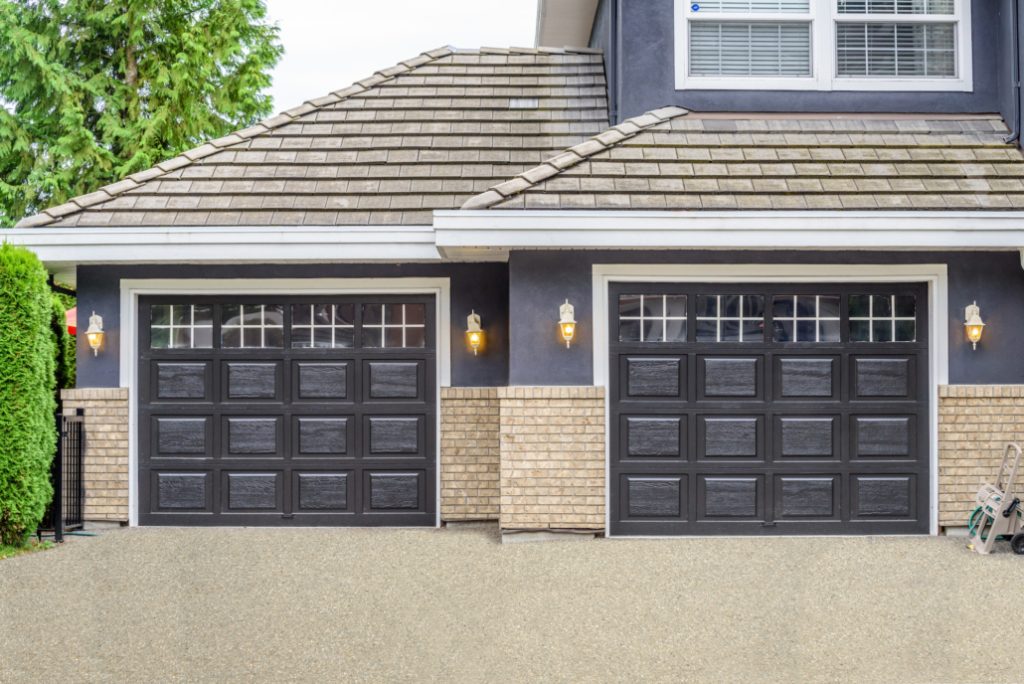Start by Separating Residential and Commercial Requirements
Trying to choose a single “general” type of garage door for every situation is a mistake. Residential applications focus on appearance, noise control, and convenience. Commercial environments demand durability, higher cycle ratings, stronger hardware, and compliance with safety standards. Treating these categories as interchangeable leads to premature failures and unnecessary repair costs.
What Matters for Residential Customers
Design and Curb Appeal
Homeowners prioritize the look of the door—panel style, window layout, color options, and materials. Steel offers low maintenance, wood provides a premium look, and composite materials deliver the appearance of wood without constant upkeep.
Insulation and Quiet Operation
Insulated doors improve home energy efficiency and help reduce noise. If the garage sits under a bedroom or next to living space, a well-insulated, quiet-operating door is essential.
Modern Convenience Features
Smart openers, secure keypads, battery backup systems, and reliable safety sensors matter more in residential settings. The goal is smooth daily operation, not industrial-strength performance.
What Matters for Commercial Buyers
High-Cycle Hardware
Businesses run doors dozens or hundreds of times per day. A commercial door must use heavy-duty torsion springs, rugged tracks, reinforced hinges, and wear-resistant rollers. Residential-grade components fail quickly under this stress.
Material Strength and Security
Commercial settings require higher-gauge steel, industrial aluminum, or specialty materials depending on the environment. The door must withstand impact, high usage, and in many cases, security demands.
Operator Compatibility
A commercial operator must deliver consistent performance under heavy load. Variable frequency drives, advanced safety systems, and integration with building access controls are standard requirements—not optional upgrades.
Code and Safety Compliance
Fire-rated doors, emergency egress systems, and enhanced safety sensors are common commercial needs. Failing to choose the correct setup leads to violations and liability issues.
Why Professional Guidance Matters
Garage door sales aren’t just about picking a style from a catalog. The wrong selection—wrong insulation, wrong spring system, wrong operator—leads to consistent problems. A proper sales consultation evaluates:
- Usage frequency
- Environmental exposure
- Security needs
- Clearance and layout constraints
- Required safety features
- Future maintenance expectations
Professionals match the door to the building’s actual demands instead of making assumptions based on price or appearance.
A single mention of Ventes portes garage Dor Docteur fits naturally here because solid sales guidance depends on understanding both product engineering and real-world performance expectations.
Choosing a Door for Long-Term Performance
Don’t Underspec Commercial Doors
A “cheaper” option ends up costing more in downtime and repairs. Prioritize durability and cycle rating.
Don’t Overspec Residential Doors
Buying industrial hardware for a home is unnecessary and adds cost without benefit.
Focus on the Entire System
The door, tracks, springs, rollers, and operator must be matched. If one component is wrong, the entire system suffers.
Bottom Line
Residential and commercial garage door sales serve different needs, but both require careful selection. You need durability and correct hardware in commercial settings, and you need design, efficiency, and convenience in residential ones. The right choice comes from evaluating how the door will be used—not from guessing based on appearance or price.

